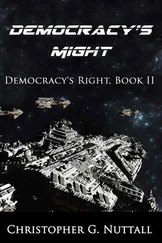“Bring them in,” she ordered, tiredly. Her last patient, someone who had been shot through the shoulder by one of the alien bullets, would probably never recover the use of his arm. One of the soldiers had commented that the aliens seemed to use elephant guns, something that made sense given how tough they were. Ordinary ammunition wasn’t quite good enough against Leatherneck skin. “I’ll have a look at them as soon as I can.”
“You’d be better off getting a nap,” a new voice said. She looked up to see Abdul. “You look too tired to work properly.”
“I feel dead.” Fatima admitted. She hadn’t seen Abdul in days, ever since he’d brought her to the first of the makeshift hospitals. From what she’d heard, he’d been too busy organising attacks on collaborators and the alien patrols. “Can you have someone else take care of the patients?”
“I’ll do my best,” Abdul promised. He hesitated. “I think you need at least five hours of sleep, so get to bed and stay there. We’ll wake you up if we have to vacate this place in a hurry.”
Fatima looked up at him, nodded, and then stumbled into the next room. God alone knew what it had been originally intended for, but they’d set up a cot for her beside the window. Outside, she could see fires in the distance. London was burning — absently, she wondered if someone on the other side would realise that the resistance hadn’t set any fires near its hideouts. But judging from the chaos, the collaborators had too much else to worry about before they started hunting the resistance again. They’d have to put out the fires, calm the rioters and — if the aliens carried out their threat — provide help to a destroyed city and its stricken population.
She closed her eyes and felt sleep overcome her.
North England
United Kingdom, Day 46
“There isn’t any question about it,” Gabriel said, flatly. “We’re going to return the alien prisoner.”
He held up a hand before Brigadier Gavin Lightbridge-Stewart could say anything. He’d come to the Prime Minister’s hiding place despite the security risks, because it was one conference that they couldn’t trust to the internet. The Leathernecks had a great many human computer experts in their hands now, people who could presumably track messages through the internet and locate their destination. Gabriel found their dependence upon messengers and carrier pigeons oddly ironic, given the circumstances. The longer the war continued, the more primitive the resistance would become.
“I know that the alien represents a treasure trove of valuable information and biological data,” he continued, “but keeping him isn’t worth a few million human lives. We can shove him out somewhere and one of their patrols can pick him up.”
Lightbridge-Stewart frowned. “There are complications, Prime Minister,” he said. “The first one is simple; if we give in to their threats, we create a precedent. If they feel that they can threaten us into submission, they will use it again and again, blackmailing us into surrendering our only hope of carrying on the fight. What would you say, a week from today, if the aliens threaten to bombard London or Edinburgh or Newcastle if you don’t surrender yourself to them?”
Gabriel hesitated. “I’m aware of the risks,” he said, flatly. “Doesn’t the fact that they haven’t threatened mass bombardments suggest that they don’t intend to push it that far?”
“They may not have believed that it would work,” Lightbridge-Stewart countered. “From what we have been able to draw from our alien friend, we know that humans are often more barbaric than the Leathernecks — we’re certainly a lot better at justifying inhuman treatment to ourselves. If we give them proof that it will work, they may try it again. Where do we draw the line and say where we will no longer allow them to threaten us into submission?”
“But this is one point where we have to make a decision,” Gabriel snapped. “We have an alien prisoner — and they want him back. Now, do you think that keeping that alien a prisoner is worth the loss of God knows how many of our own civilians?”
He pressed on before Lightbridge-Stewart could say anything. “And what happens to our reputation if we refuse?” He asked. “How many of our own people will turn against us after we lose an entire city?”
“The entire planet is at stake,” Lightbridge-Stewart said. “What decision we make here and now will have an effect on the entire world. What if our captive can tell us how to contact the other intelligent races out there? What if we could get help from someone who could take out the alien starships hovering over our heads, poised to bombard us into submission if we rebel?”
“But we don’t know that we could,” Gabriel said. “We have the insight into their computers — maybe we can get the information some other way. I won’t put so many lives at risk because we have one captive. The dangers are just too great.”
He looked the military officer in the eye. “Correct me if I’m wrong,” he added, “but am I not the ultimate civilian authority?”
Lightbridge-Stewart didn’t hesitate. “You are, and if you want to order him released, I will carry out the order,” he said. “However, there are other complications. Moving something the size of the alien cross-country will not be easy. Wherever they find him, they will certainly suspect that he was concealed somewhere nearby and start searching for him. There is a distant possibility that they might come here.”
“It’s a risk we have to accept,” Gabriel said. He glanced at the television. The volume was down, but the BBC had helpfully displayed a ticking clock counting down the seconds to when the alien ultimatum ran out. He’d watched images of desperate rioters battling the police and the aliens, or fleeing out across the countryside like locusts. Others had boarded small boats and set sail for Ireland or the Scottish Islands, where the aliens hadn’t bothered to establish a presence. They might find safety there. “We can abandon this building if necessary.”
“Yes,” Lightbridge-Stewart said. There was a long moment when they both contemplated possible futures. “I can see to his release, if that is your command.”
“It is,” Gabriel said. “Please see to it.”
* * *
“Did I do the right thing?”
Sergeant Butcher shrugged. The three SAS men stayed close to Gabriel, while a small unit of soldiers were outside, maintaining a secure perimeter. Gabriel was rather surprised that the aliens or their collaborators hadn’t bothered to investigate the old manor and register the people staying there, but Haddon Hall had been off the official radar for many years. The owners having ties with the security services had advantages for them. Gabriel would have been surprised if they even got taxed.
“I don’t think that there was any right answer,” Butcher said, after a moment. He looked down at the board for a long moment. All of the three SAS men played Chess and Gabriel had found it a good way to relax. “You have to make the decision and then stick to it.”
He moved a piece forward and smiled, thinly. “I used to serve in Africa on missions that officially didn’t exist,” he added. “The locals really didn’t trust their own governments — not without reason. If there was a foreign interest willing to spend big bucks on bribes, the governments would roll over and use troops to clear away the locals if they got in the way. I don’t think you could afford developing a reputation as someone willing to throw British lives away for one alien.”
Gabriel frowned, considering the board. “And what happened to most of those unlucky people?”
Читать дальше












